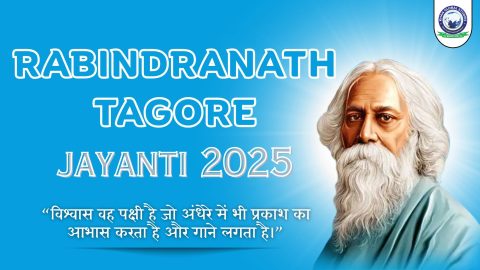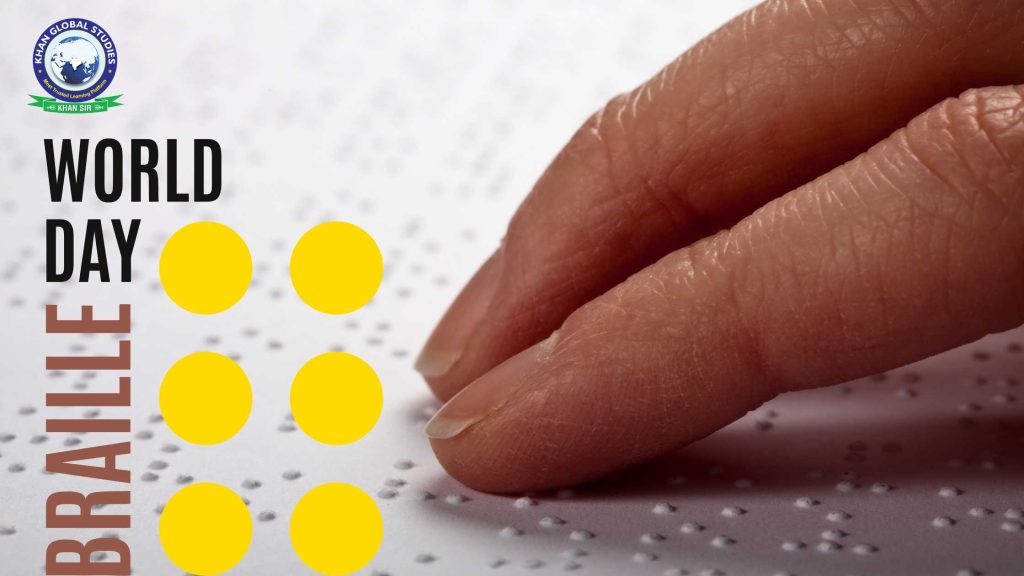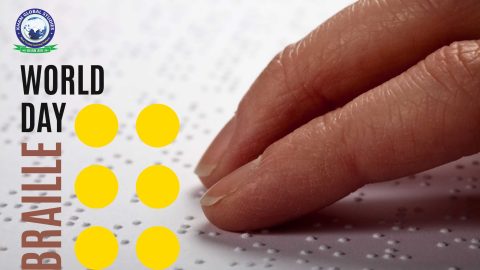World Braille Day is celebrated annually on January 4th to honor the legacy of Louis Braille, the French educator and inventor of the Braille system. This day holds immense importance globally for visually impaired individuals, as Braille provides them with a medium to read and write, empowering them towards literacy and independence.
Who was Louis Braille?
Louis Braille was born on January 4, 1809, in the village of Coupvray, France. His father, Simon-René Braille, worked as a harness and saddle maker for royal horses. Due to financial hardships, young Louis often assisted his father. Unfortunately, at the age of three, a tragic accident with a tool caused him to lose sight in one eye, which eventually led to complete blindness by the age of eight.
What is Braille?
Braille is a tactile writing system that uses patterns of raised dots to represent letters, numbers, and punctuation marks. These patterns can be read by touch, enabling visually impaired individuals to access written information. Braille is versatile, with adaptations available for different languages and technical notations, such as mathematics and music. Writing in Braille involves using tools like the Braille writer machine or a stylus and slate. A group of raised dots is called a ‘cell.’
How was Braille invented?
Despite his blindness, Louis Braille was determined to succeed. He enrolled in a school for the blind, where he learned about a specialized military cryptography system designed for reading messages in the dark. Inspired by this concept, he created the Braille system for the visually impaired, which remains a revolutionary tool worldwide.
History of World Braille Day
According to the World Health Organization (WHO), approximately 39 million people worldwide are completely blind, while 253 million suffer from some form of visual impairment. Recognizing the importance of Braille in empowering such a vast population, the United Nations General Assembly adopted a resolution on November 6, 2018, to celebrate World Braille Day annually on January 4th, marking Louis Braille’s birth anniversary.
Importance of World Braille Day
According to a report by the World Health Organization (WHO), approximately 39 million people worldwide are completely blind, and 253 million people suffer from some form of visual impairment. Given this large number of visually impaired individuals, the United Nations General Assembly passed a resolution on November 6, 2018. This resolution designated January 4th, the birthday of Louis Braille, as World Braille Day every year.
The purpose of this day is to empower visually impaired individuals, ensure educational and career opportunities for them, and promote their equal participation in society. It serves as a reminder that with the right resources and technologies, visually impaired people can also become self-reliant.
Significance of World Braille Day
- Empower Visually Impaired Individuals: Provide them with equal opportunities in education and career.
- Raise Awareness: Highlight the challenges faced by the visually impaired and the role of Braille in overcoming these obstacles.
- Promote Inclusion: Advocate for a society where individuals of all abilities have equal rights and respect.
- Emphasize Accessibility: Encourage the use of Braille and assistive technologies to ensure access to written and digital content.
The Future of Braille
With advancements in technology, Braille continues to evolve. Modern devices such as refreshable Braille displays and Braille-enabled smartphones have significantly improved access to digital content for visually impaired individuals. However, there remains a pressing need for the widespread availability of Braille materials and greater awareness about its importance.
Conclusion
World Braille Day serves as a tribute to Louis Braille’s invaluable contribution and a reminder of the rights and dignity of visually impaired individuals. By supporting initiatives for accessibility and inclusion, we can create a world where everyone, regardless of their abilities, has the opportunity to lead an independent and fulfilling life.





